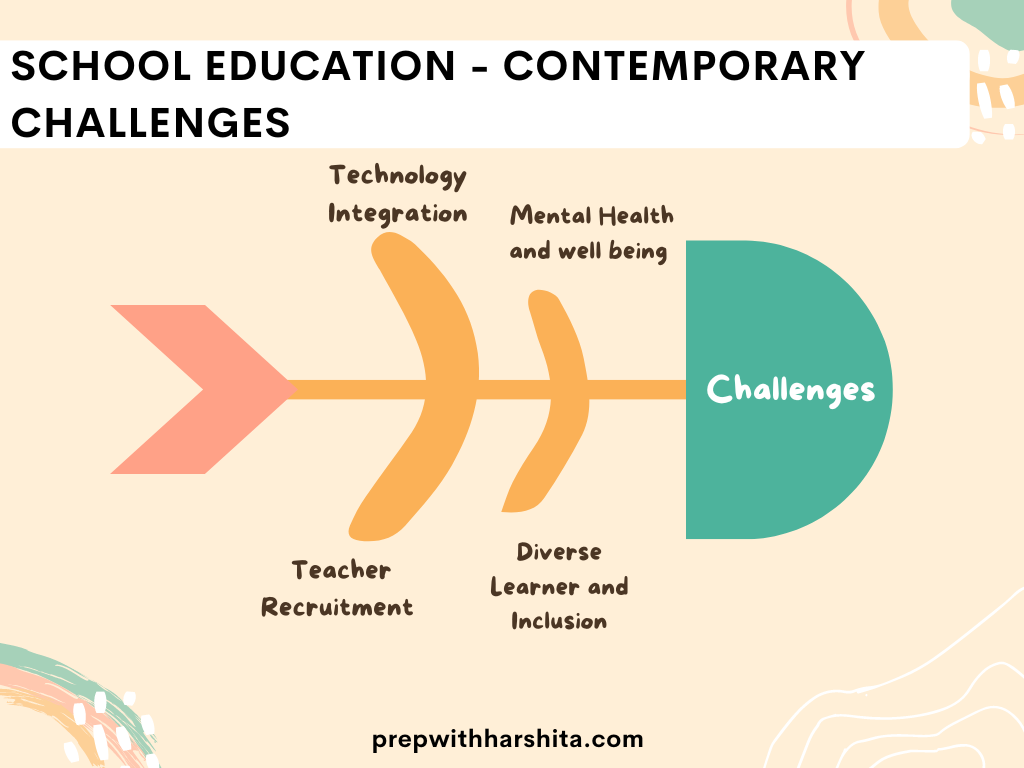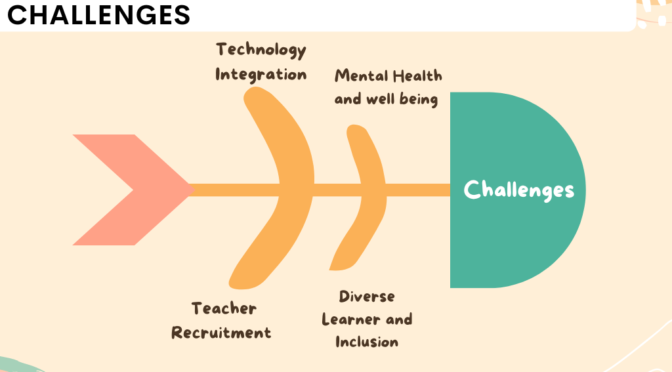Contemporary school education faces various challenges that impact its effectiveness and relevance in preparing students for the complex demands of the modern world.
Here are some of the key challenges:
- Technology Integration: Rapid advancements in technology present both opportunities and challenges for education. Integrating technology effectively into the classroom requires adequate infrastructure, teacher training, and digital literacy. Additionally, ensuring equitable access to technology and addressing concerns such as screen time and digital distractions are important challenges to overcome.
- Inequality and Achievement Gap: Educational inequality remains a significant challenge in many societies. Disparities in access to quality education, resources, and opportunities contribute to an achievement gap between students from different socio-economic backgrounds, ethnicities, and geographic regions. Closing this gap requires targeted interventions, equitable funding, and addressing systemic barriers.
- Standardized Testing and Accountability: The emphasis on standardized testing as a measure of educational success has raised concerns. Critics argue that it narrows the curriculum, promotes a “teaching to the test” approach, and places excessive pressure on students and teachers. Balancing the need for accountability with a more holistic and authentic assessment of student learning is a challenge faced by education systems.
- Relevance and Skills Gap: There is a growing demand for education to address the changing needs of the labor market and society. The traditional focus on rote memorization and academic knowledge may not adequately equip students with the skills and competencies needed for success in the 21st century, such as critical thinking, problem-solving, collaboration, creativity, and digital literacy. Incorporating these skills into the curriculum and pedagogy is a challenge for educators and policymakers.
- Diverse Learners and Inclusion: Education systems need to address the needs of diverse learners, including students with disabilities, those from different cultural backgrounds, and those with varied learning styles. Providing inclusive education requires adapting instructional approaches, providing necessary support services, fostering a positive and inclusive school climate, and promoting cultural competency among educators.
- Mental Health and Well-being: Increasing awareness of mental health issues among students highlights the need for schools to prioritize the well-being of learners. Addressing stress, anxiety, bullying, and fostering a supportive environment that promotes positive mental health is a challenge that requires collaboration between educators, counselors, and other stakeholders.
- Global Citizenship and Cultural Awareness: In an interconnected world, education must prepare students to be globally competent and culturally aware. Promoting understanding, empathy, and respect for diverse cultures, perspectives, and global issues is crucial. Developing global citizenship skills and incorporating international perspectives into the curriculum can be a challenge due to limited resources, cultural biases, and competing priorities.
- Teacher Recruitment and Professional Development: Recruiting and retaining qualified, motivated, and diverse teachers is an ongoing challenge. Offering competitive salaries, providing effective professional development opportunities, and addressing the increasing workload and burnout concerns are crucial for maintaining a high-quality teaching workforce.
Addressing these contemporary challenges in school education requires a multi-faceted approach involving collaboration among educators, policymakers, parents, and communities.
It necessitates rethinking curriculum design, instructional strategies, assessment methods, and educational policies to ensure that education remains relevant, equitable, and responsive to the evolving needs of students and society.
Also Read: Socialization Practices in School

Also Read: Prep with Harshita

